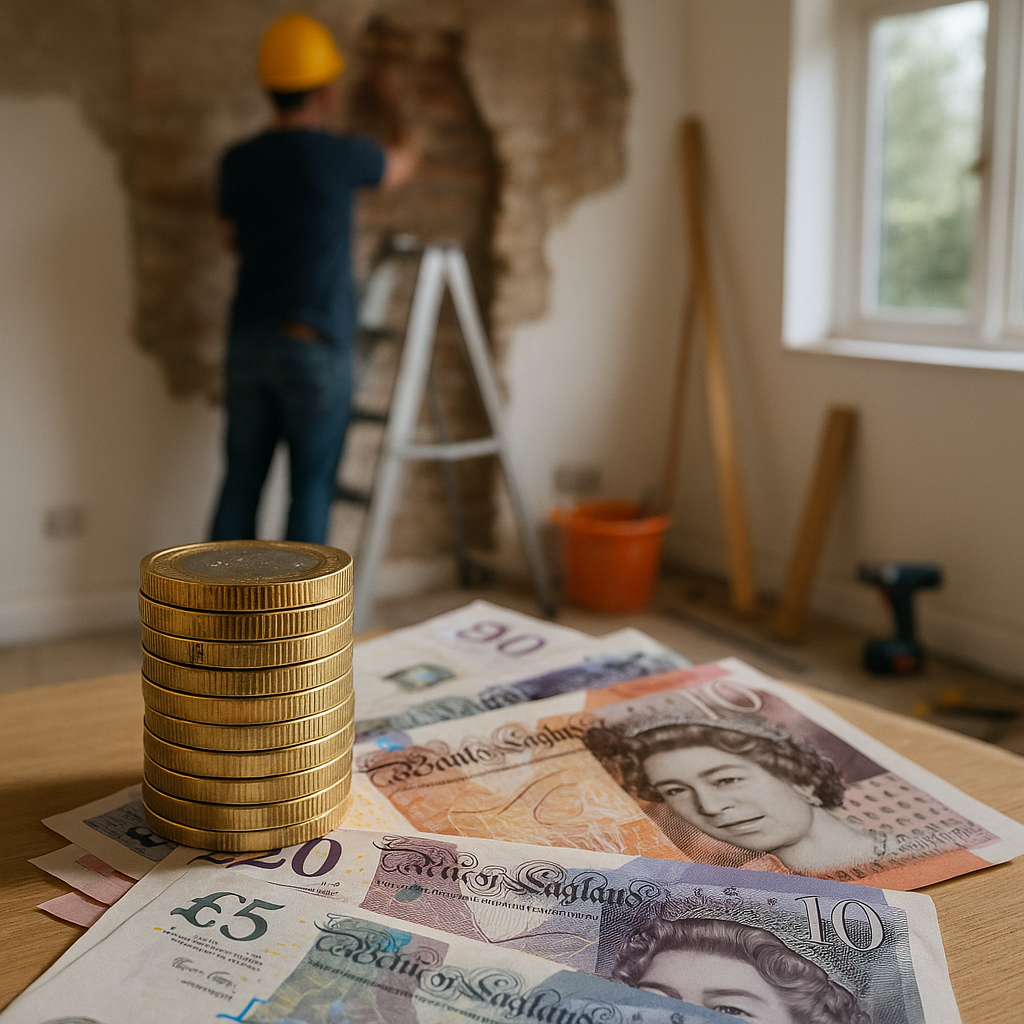
Currency Strength Unlocks Hidden Profits in UK Property Renovations
How the Strong Pound Is Quietly Boosting UK Property Renovation ROI
Money grows where attention flows. Property investing attracts countless professionals seeking financial freedom, yet many rush in without considering the macroeconomic factors quietly shaping their returns. One such factor? Currency strength.
The British pound has recently strengthened against the US dollar, now trading near 1.3286 as of May 2025. This appreciation follows stronger-than-expected UK GDP growth of 0.7% in Q1 2025. While headlines focus on forex or global trade, the savvy few in property investing are already capitalizing on how this shift directly impacts renovation costs—and returns.
Why Currency Strength Matters for Property Renovations
The connection between exchange rates and renovation profit margins isn't immediately obvious. But when you break down the typical costs of a renovation project, it becomes clear that a stronger pound has multiple advantages:
1. Material Cost Advantages
Many construction materials—such as timber, metals, tiles, fixtures, and high-end appliances—are priced in dollars or imported from overseas. A stronger pound increases your buying power when sourcing internationally.
Even modest changes in the exchange rate can make a significant difference. Renovators are currently saving 5–15% on imported materials compared to periods of pound weakness, depending on the product and supplier.
2. Contractor Pricing Stability
Although labour costs are local, many contractors price jobs based on total project inputs. When materials become cheaper, they may keep quotes competitive to win business. This cost stability benefits investors planning mid- to large-scale renovations.
3. Luxury Finish Premiums
A strong pound makes premium imported materials—such as Italian marble, German appliances, or Scandinavian fittings—more accessible. This allows investors to achieve higher-end finishes at a lower cost, commanding better rents and resale values in a competitive market.
Regional Markets Amplifying Currency Advantages
Currency-related savings matter most in high-growth markets. JLL forecasts UK property values will rise by 19.9% and rental prices by 18.8% between 2025 and 2029.
Birmingham stands out in this context, with projected rental growth of 22.2% during the same period. For renovators, this creates a perfect storm: lower renovation input costs paired with rising asset values and rental income.
The Renovation Arbitrage Strategy
Some investors are adopting what we call a "renovation arbitrage strategy"—deliberately timing material-heavy project phases when the pound is strong.
Key tactics include:
- Bulk-buying imported materials when exchange rates are favourable
- Targeting value-add properties in strong regional markets
- Focusing on high-import renovation elements like kitchens and bathrooms
- Marketing finished units with premium features sourced at lower cost
- Adjusting timelines to align with currency peaks and supplier availability
This strategy relies on more than just property fundamentals—it requires an eye on macro trends.
The Interest Rate Connection
Currency strength doesn’t exist in a vacuum—it often reflects broader economic signals like interest rate expectations. The Bank of England has recently lowered the base rate to 4.25%, with markets expecting further cuts in 2025 that could bring rates closer to 3.5% by 2026.
Lower interest rates could increase property values and reduce financing costs. When paired with reduced renovation costs from a strong pound, this creates a rare window of opportunity to boost ROI on renovation projects.
Putting the Strategy into Practice
To make the most of this moment, consider the following system:
Step 1: Monitor Currency Trends and Material Sensitivity
Track the pound's movement against key currencies. Create a “currency sensitivity index” for common renovation materials—e.g., how tile prices shift with GBP/USD fluctuations.
Step 2: Focus on High-Growth Regional Markets
Areas like Manchester, Birmingham, and Leeds currently offer the best ROI on currency-leveraged renovations due to strong fundamentals and demand.
Step 3: Partner With Import-Aware Suppliers
Work with suppliers who understand global pricing and can offer deals or hedging options during favourable exchange conditions.
Step 4: Tailor Your Specifications to Currency Conditions
When the pound is strong, invest in premium imported finishes. When it's weaker, focus on locally sourced alternatives.
Step 5: Schedule Projects Around Currency Trends
Time your material-heavy renovation phases (kitchens, bathrooms, fixtures) to coincide with strong GBP periods. This flexibility can increase profit margins by 10–20%.
Case Study: The Birmingham Advantage
Let’s say you completed a £40,000 renovation in Birmingham in 2023 when the pound was weaker. In 2025, with stronger GBP and cheaper materials, the same renovation might cost £34,000–£36,000.
With Birmingham’s rental values projected to rise by 22.2% by 2028, this cost saving combined with yield growth could generate returns 20–30% higher over a 3–5 year hold.
Risks and How to Mitigate Them
While currency-aware investing is powerful, it comes with risks:
- Exchange rate volatility: Lock in prices early when possible.
- Supply chain delays: Use reputable importers with UK warehousing.
- Market timing pressure: Focus on strong fundamentals rather than trying to "time the top."
Mitigation tactics include:
- Setting aside a contingency fund (10–15%) for price or delivery fluctuations
- Choosing suppliers who offer currency hedging or fixed pricing
- Maintaining project flexibility to adjust schedules if needed
Final Thoughts: Macro-Aware Investing Wins
The pound's recent strength is more than a forex headline—it’s a competitive edge for strategic property investors. By combining economic insight with smart sourcing and project planning, you can reduce renovation costs, improve specs, and elevate ROI.
Currency movements will always be unpredictable, but your approach doesn’t have to be. By staying alert to macroeconomic trends and building a flexible, informed renovation strategy, you gain an edge most investors overlook.
Smart investors know real profits happen not just when you sell, but when you buy—and when you plan. This is your moment to act.
